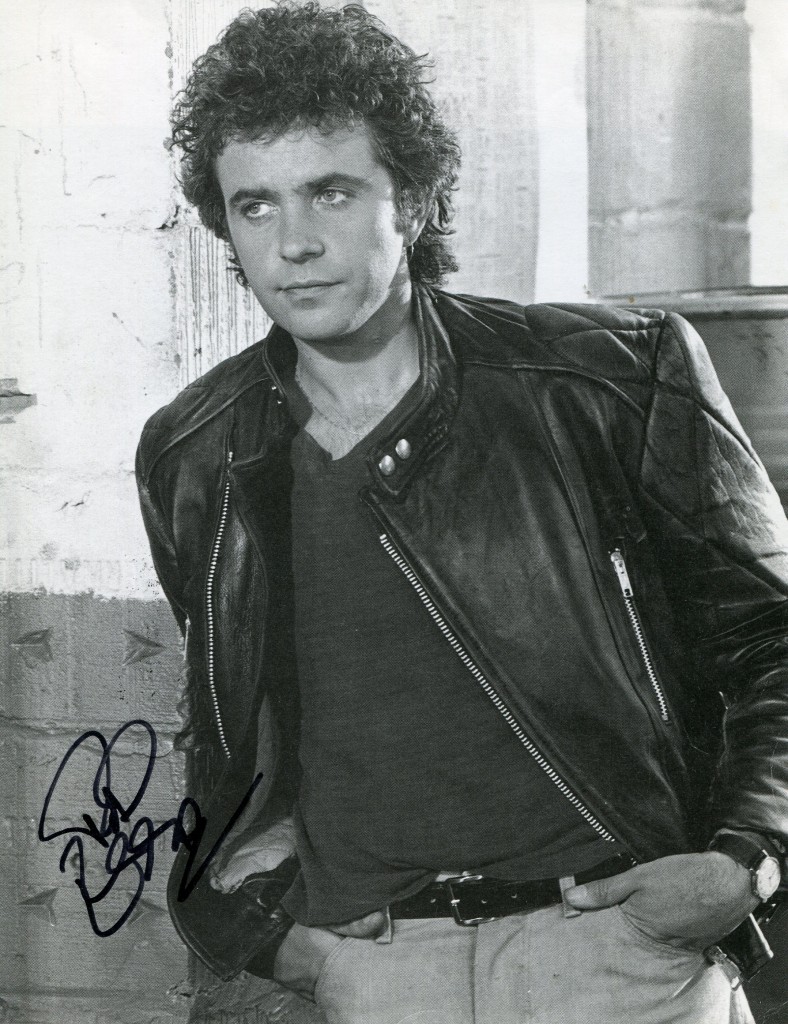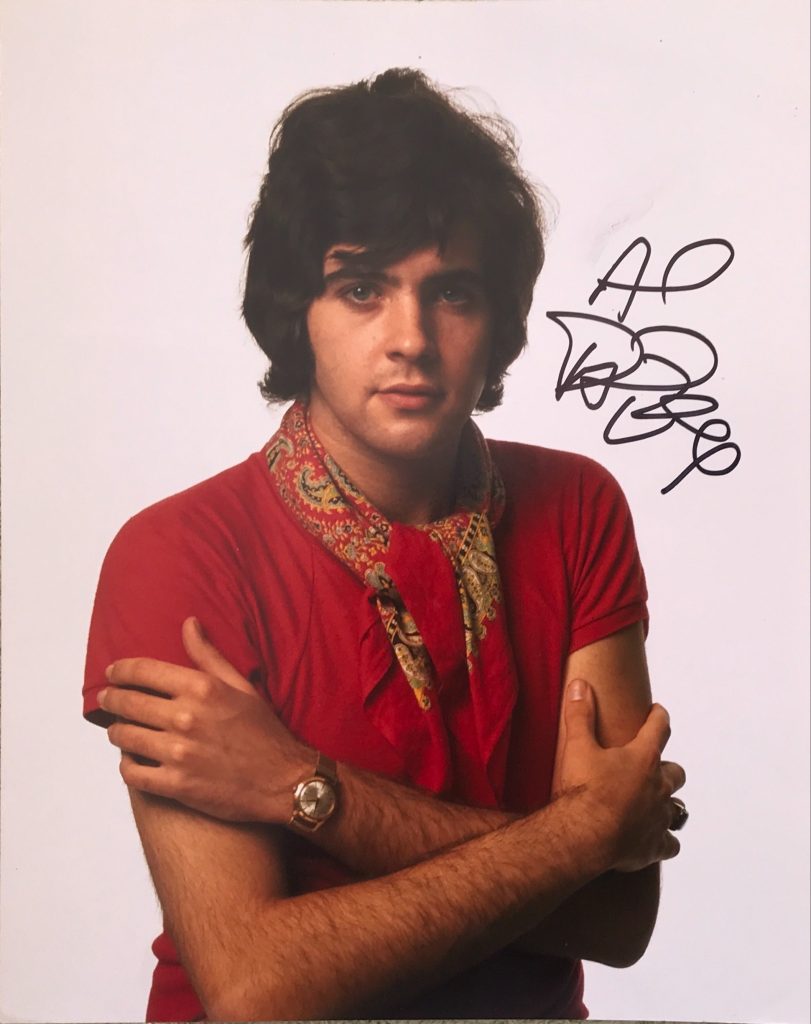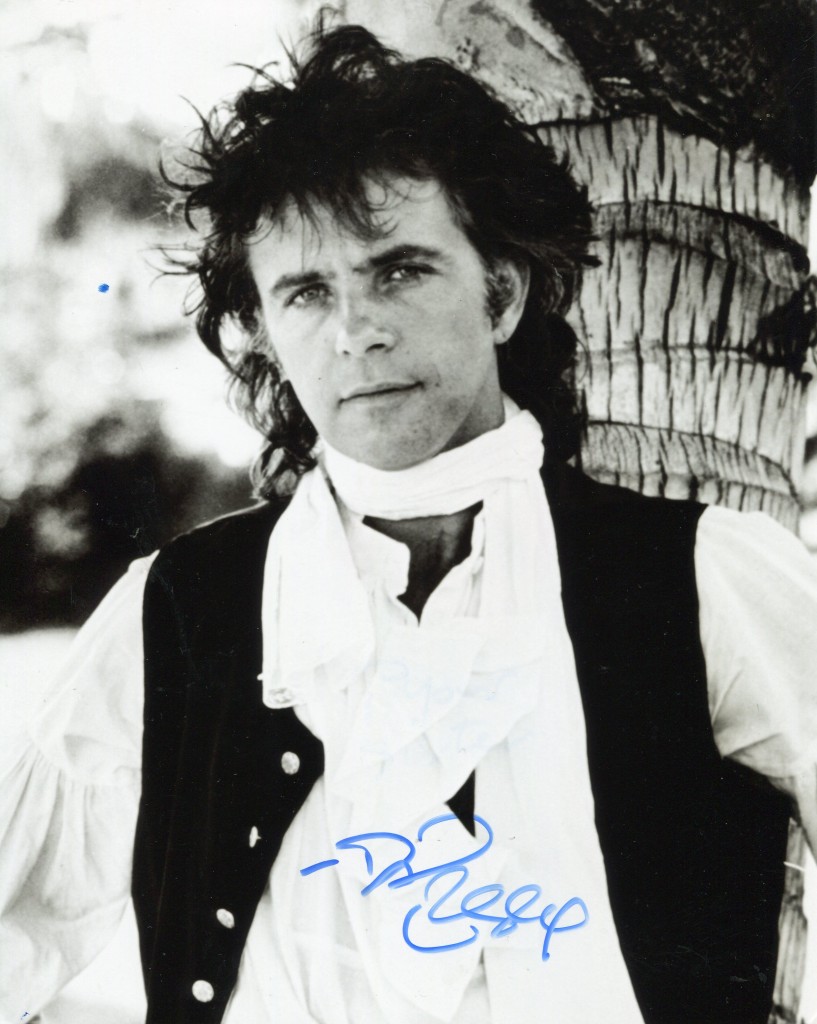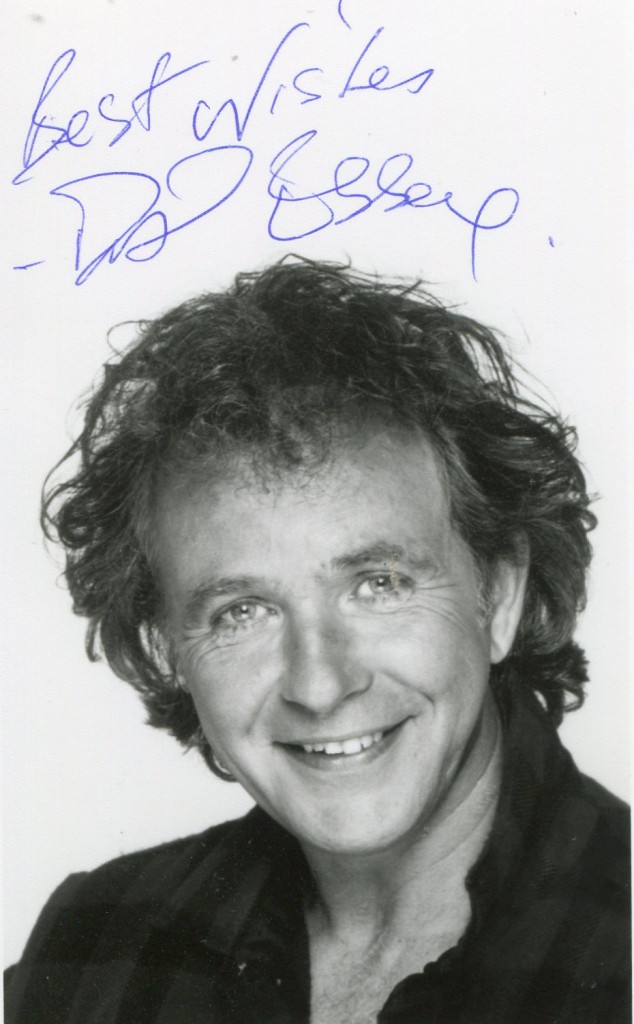



David Essex (Wikipedia)
David Essex was born in Plaistow, Essex (now a neighbourhood in the London Borough of Newham, included in the establishment of Greater London on 1 April 1965). His father, Albert, was an East End docker and his mother, Olive (née Kemp), was a self-taught pianist and an Irish Traveller. His grandfather, Thomas Kemp, was nicknamed “Philimore”, which was the anglicised version of “Philly Mor” – being Irish for “Big Philly”. Essex was two years old when his parents moved out of the overcrowded home the family was sharing with relatives, to Canning Town where he grew up.
Essex attended Star Lane Primary School. He loved playing football and did not answer any of the questions in the Eleven plus exam for entry into a grammar school, so that he could ensure he attended Shipman County Secondary School where he knew they played the game.[2] He was also a member of West Ham United Juniors for a while and dreamed of one day being a professional player.[3] He then also became interested in music and played drums with a local band, before becoming a singer. In his teens he moved to Marks Gate near Chadwell Heath and Romford in Essex.
He made his first record entitled “And the Tears Came Tumbling Down” for the Fontanalabel[4] in 1965. He then toured with a band called ‘David Essex and the Mood Indigo’ for two years and released a further seven singles in the 1960s. He also recorded two songs, ‘A Rose’ and ‘Leon and John and Billy and Me’ which remain unreleased, but exist as acetates. His first notable acting role aside from small appearances in the films Assault and All Coppers Are… was the lead in the stage musical, Godspell[5] in 1971 at the age of 23. Two years later, he starred in the film That’ll Be the Day (1973)[6] and recorded his international hit single, the self-penned “Rock On“, in the same year. It sold over one million copies, and was awarded a gold disc by the R.I.A.A. in March 1974. It was nominated for a Grammy and reached No. 5 on the BillboardHot 100.[7] A second single, “Lamplight”, also reached the Top 10 in the UK Singles Chart.
In the 1970s, Essex emerged as a performer of some note. Contrary to his own biography his first concert was at East Ham Granada in East London on Saturday 2 November 1974 and not the Odeon. His biggest hits during this decade included two UK Number One singles: “Gonna Make You a Star” (1974) and “Hold Me Close” (1975). He also appeared in Stardust, a 1974 sequel to That’ll Be the Day.[8] The title song was another Top 10 hit. In 1976, Essex covered the Beatles song, “Yesterday“, for the musical documentary All This and World War II.
Essex’s pop idol looks gave him a strong female fan base and his British tours created scenes of hysteria reminiscent of Beatlemania. According to The Guinness Book of British Hit Singles,[9] he was voted the number one British male vocalist in 1974, and was a teen idol for more than a decade.
In December 1973, Essex appeared in the stage version of Tommy at London’s Rainbow Theatre.
In 1978, he appeared on Jeff Wayne‘s concept album, a musical version of The War of the Worlds, as the Artilleryman. In the UK the two-record set remains a bestseller.
In the same year, Essex played the character Che in the original production of the Andrew Lloyd Webber musical Evita, and his recording of the show’s “Oh What a Circus” reached Number 3. Two years later, he starred in the motorcycle racing film Silver Dream Racer; and the soundtrack song “Silver Dream Machine” was yet another Top 3 hit in the UK Singles Chart. Essex, a keen motorcyclist, waived his fee for the then-new 1980 electric start Triumph Bonneville he had contracted to advertise on behalf of the struggling Triumph motorcycle workers’ co-operative.
In 1981, he starred in Childe Byron, a play staged at the Young Vic theatre.
In 1985, he co-wrote and starred as Fletcher Christian in the West End musical Mutiny!, based on the novel Mutiny on the Bounty by Charles Nordhoff and James Norman Hall. The score produced two more hit singles, including “Tahiti,” his tenth Top 10 success.
Essex continued to perform in all areas of show business. A 1988 sitcom, “The River“, achieved good ratings. In 1991, a compilation entitled His Greatest Hits reached Number 13; a 1993 album, Cover Shot, featuring a cover version of the Buzz Cason/Mac Gayden song “Everlasting Love“, peaked at Number 3. His autobiography, A Charmed Life, was published in 2002, and became a bestseller.
In 1999, Essex was named an Officer of the Order of the British Empire. He still tours the UK every year and releases albums through his website. Despite his long and successful British career, he remains largely unknown in the United States. “Rock On” reached Number 1 in 1974, and was his only US [Cash Box] Top 40 hit single.
Essex, who claims to come from a family of Irish Travellers, played a kind-hearted nomad in one episode of ITV1‘s 1960s Yorkshire-based drama Heartbeat in 2000. Essex told Jake Bowers of the BBC’s Rokker Radio, a programme for Gypsies and Travellers, on 30 July 2006, that he has always been openly proud of his Traveller roots, but that, having moved to the US, he felt it inappropriate for him to continue as Patron of Britain’s National Gypsy Council, which works for equal rights, education, and services for Romany and Irish Travellers.
In 2005, he appeared as a guest vocalist and wrote songs for Saint Etienne‘s album Tales from Turnpike House. Also that year, he appeared in the Channel 4 documentary Bring Back…The Christmas Number One.
Essex was due to join the cast of soap opera EastEnders, in early 2006, as new character Jack Edwards. However, the role was expanded beyond the three weeks planned, and Essex was unable to commit the time.[18] The role instead went to Nicky Henson.
A model and recording of Essex is featured in the museum of West Ham United Football Club. In the recording, he explains his reasons for supporting West Ham and his love of the team.
Essex spent six years as an ambassador for Voluntary Service Overseas, which earned him an OBE in 1999.
In February 2016, Essex performed in The War Of The Worlds at the Dominion Theatre.
Essex used to record and release records on his own ‘Lamplight’ record label. He has since changed the name of his company to Joseph Webster Ltd, named after his first grandchild. He tours regularly and continues to act, appearing in Boogie Nights 2, Footloose and Andrew Lloyd Webber‘s musical Aspects of Love.[20] From September 2008 to the summer of 2009 he took his own musical, All the Fun of the Fair, on a tour of the United Kingdom. He followed this in the autumn with a sell-out tour of the UK, named the Secret Tour. Essex has released a DVD on his website of the last night of the tour, filmed in Bournemouth. He returned to London’s West End with his own hit musical All the Fun of the Fair but with a different ending to that performed in the Provinces.
In January 2011, it was announced that Essex had finally joined the cast of EastEnders as Eddie Moon, five years after he was initially supposed to appear in the show.[22] His first on-screen appearance was on 3 June 2011. Eddie left the square on 6 October 2011. He then wrote the music score for the film Traveller (2013), in which he co-starred with his son Billy Cook who played the main role as a half-gypsy trying to find his identity.

